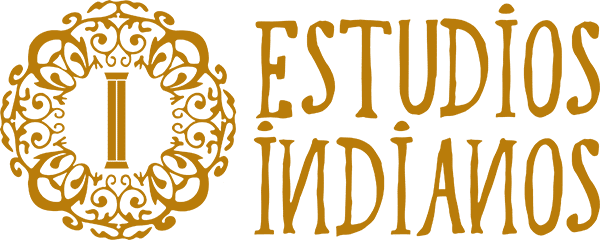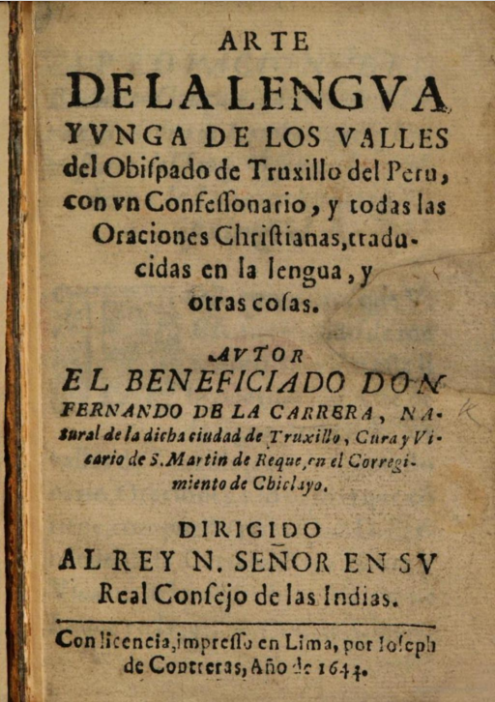
Libraries
Libraries
Arte de la Lengua Yunga de los valles del Obispado de Truxillo del Perú
The notion of native (mother) tongue, since ancient times, was built on the food metaphor: as the mestizo clergyman, Fernando de la Carrera, points out, he sucked the yunga language. This word is a Quechua exonym that designates the language and the Mochica population. Financed by his own account, De la Carrera published the work with the title Arte de la Lengua Yunga de los valles del Obispado de Truxillo del Peru, con un Confessonario, y todas las Oraciones Christianas, traducida en la lengua, y otras cosas. It is a grammar that includes a series of pedagogical-evangelizing texts.
Its author describes the Mochica-yunga language as difficult, since it has even had to invent two letters, since the then 23 of the Latin alphabet were not enough to describe its intricate sounds. Even though the cause of the writing and compendium of these works was the effectiveness of the preaching, it must be recognized that the work carried out by the empirical philologists was remarkable. They were driven by a real desire to understand both the lexicon and the deep structures of the language. The prologue to the reader narrates a series of misunderstandings raised both by the understanding of the doctrine taught by the priests. According to the author, the great challenge of the mochica-yunga is phonological and that is why he used both his imagination and the Latin diphthong æ that he used to be as faithful as possible to the language. In that sense it declares that
… no hay nación en el mundo que no se huelgue que le hablen en su lengua, que es la que concilia las voluntades por el trato y comunicación.

